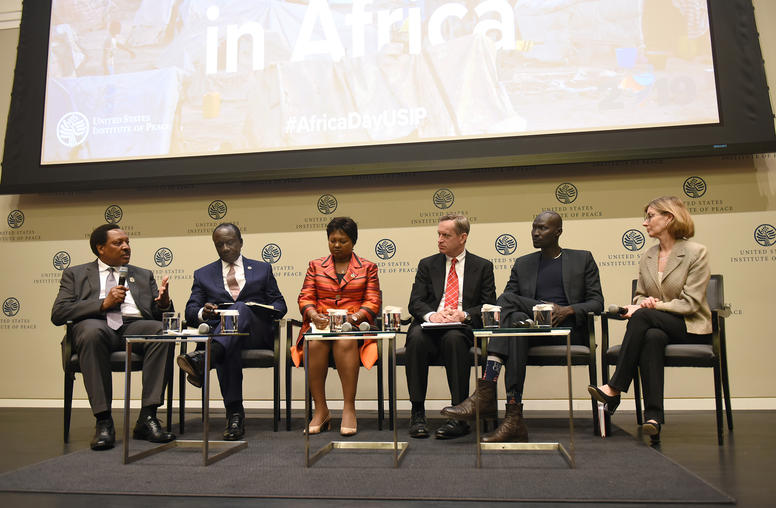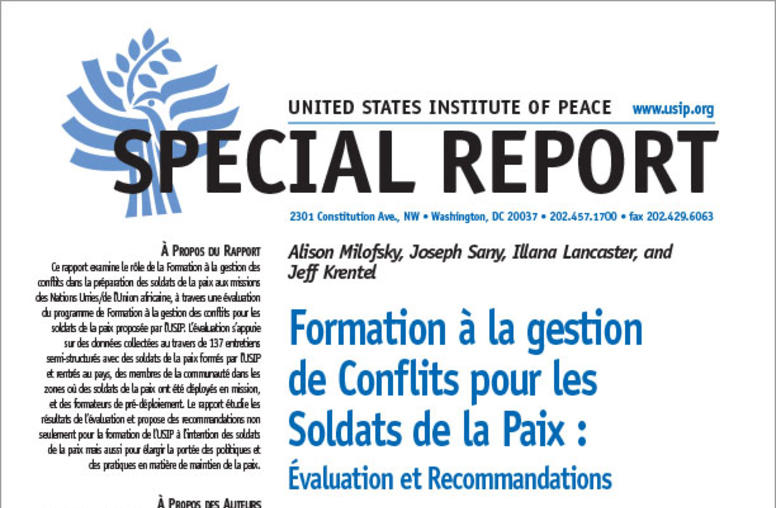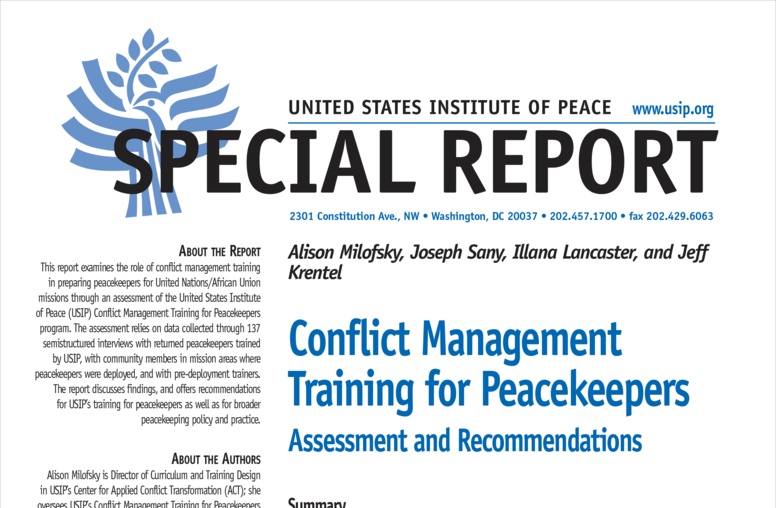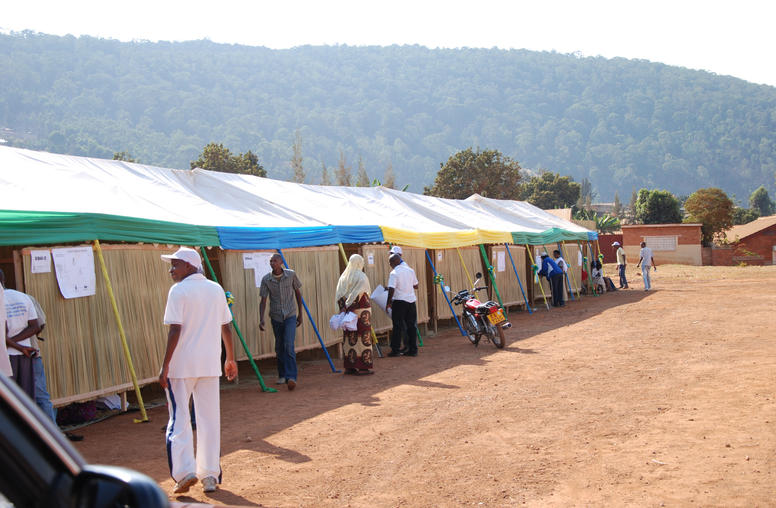USIP training develops conflict management and negotiation skills of Rwandan military officers headed for the Darfur region of Sudan as peacekeepers.
February 8, 2011
Ted Feifer, Keith Bowen, and contractor Joseph Sany led USIP’s seventh workshop for Rwandan Defense Force (RDF) officers preparing an infantry battalion for deployment with the United Nations/African Union Hybrid Mission in Darfur (UNAMID). The training was conducted in partnership with the Department of State's African Contingency Operations and Training Assistance Program (ACOTA). The workshop was held February 8-11, 2011 at the RDF base at Gako, one hour's drive south of Kigali.
The workshop was preceded by a one-day consultation with base cadre who would be supporting the USIP trainers during the workshop. The USIP trainers and RDF cadre reviewed the workshop agenda, discussed ways to make the program more effective, and identified opportunities for the cadres to take on new roles in helping demonstrate skills and debrief exercises.
The 30 workshop participants included the battalion commander and his subordinate officers. The program focused on developing and improving core conflict management and resolution skills for military officers deploying as peacekeepers. Program objectives were to develop and build analytical, communication, negotiation, and third party skills; strengthen problem solving in individual and group situations; and share lessons learned in the prevention, management, and resolution of conflict.
Participants took part in practical exercises involving communication, negotiation, and the role of a third party. This included a new exercise on unplanned and potentially dangerous negotiations at a roadblock. Participants also learned about the challenges of working with an interpreter in a peacekeeping context.
The workshop also included new material on the protection of civilians, focusing on its importance to the peacekeeper, issues for military leaders, early warning, and the use in the field of tools such as joint protection teams. Small groups worked on a practical exercise to identify indicators pointing to increased threats to civilians.
Finally, participants had an opportunity to apply all the skills learned in a final complex, multiparty crisis simulation with a Darfur-like context. Videos were an integral part of all aspects of the workshop.
The program was enthusiastically received by participants, who described it as highly relevant and useful. The material addressed the needs of both those who had served as peacekeepers and those exposed to the subject matter for the first time. One officer, for example, noted that the work was useful because it responded to his previous problems as a peacekeeper. On the other hand, another stated that the training was particularly useful to him because he had never had the opportunity to learn about and practice negotiation.
Explore Further
- Training Rwandan Peacekeepers for UNAMID in Darfur
USIP In the Field | February 2009



